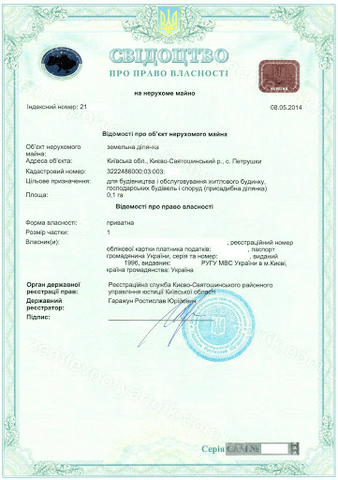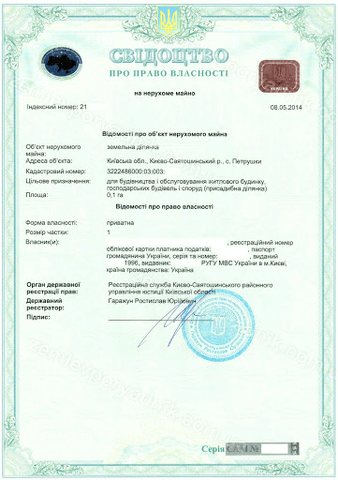Leasing of state and communal land: how to properly issue it?
Cost of services:
Reviews of our Clients
Gaining ownership or usage rights to land is of paramount importance, especially for businesses looking to expand their operations and manage real estate properties. However, challenges may arise, often linked to the absence of proper documentation of land rights.
We focus on the leasing of land by legal entities. How can this be properly formalized? Can any land plot be leased? How can a tenant protect themselves?
We'll address these questions through a case example where we assisted a client in obtaining a land plot to support retail properties. In this case, the client owned the building based on a sales agreement, but the land plot beneath it was not formed, and there was no cadastral number. The client's request involved forming the plot and entering into a lease agreement. As the owner of the retail properties was a legal entity (LLC), the client's request for land management documentation had to be made by this specific legal entity.
You may also like: How to Verify a Land Plot in Ukraine Before Purchase?
When Can You Bypass the Land Auction Procedure for Lease?
Land legislation stipulates that the leasing of land plots owned by the state or local communities should be conducted through land auctions. However, there are exceptions to this rule. According to these exceptions, land plots owned by the state or local communities are not subject to competitive transfer (through land auctions) if these plots contain real estate objects (buildings, structures) owned by a legal entity.
In our case, the building was owned by the client. Thus, all the prerequisites were in place to proceed with the land plot formation procedure and the conclusion of a lease agreement. Silent consent was a crucial aspect of this process.
"Silent consent" allows an entity interested in obtaining a land plot to develop a land management project without obtaining permission. In our case, silent consent meant that if, within a month from the date of registering the application for permission to develop land management documentation, the authorities did not grant permission or provided a reasoned refusal, our client had the right to commission the development of such documentation without obtaining such permission. Of course, the risks and the potential application of silent consent were carefully assessed in advance.
After developing the project, we submitted it for approval to the relevant council, obtained a decision on granting the land plot for use (decision timeframe: within 2 weeks from the date of receiving the project), and registered the lease right in the state registry.
There are other possibilities to bypass the land auction rule, such as:
- Land plots used for purposes related to the extraction of minerals and special water use may be exempt from the land auction requirement;
- Religious organizations with official status in Ukraine also receive specific privileges. The legislation provides special conditions for granting them land plots for cult buildings without participating in land auctions.
- Construction and maintenance of objects fully financed from state or local budgets allow for the transfer of land plots into ownership or lease based on decisions of relevant authorities.
- Land plots for the reconstruction of quarters and social construction, when contests for these projects have already been conducted, and relevant decisions have been made, may be exempt from land auctions.
- State-private partnerships can be the basis for granting land plots to enterprises with projects in engineering, transportation, and energy infrastructure, as well as multimodal terminals, communications, and road management.
You may also like: Subdivision and Consolidation of Land Plots: Key Stages and Requirements
Leasing State and Municipal Land by a Legal Entity in Ukraine
Land auctions are conducted in the form of online auctions in real-time over the Internet.
After the auction concludes, a contract for purchase and sale, lease, superficies, or emphyteusis is entered into with the auction winner who offered the best conditions for the land plot or rights to it.
The mechanism for implementing land auctions begins with the stage where the object for sale in the land auctions is determined, and a contract for their conduct is concluded.
The owner or manager decides to sell the land plot or the right to lease, superficies, or emphyteusis. At this stage, the Auction Organizer (owner or entity implementing the right to land plots) and the electronic platform operator designated for auction conduct enter into an auction implementation contract.
The next interim stage involves regulating relationships related to the application of the preemptive right of purchase. A subject with a preemptive right can purchase the land plot being auctioned electronically, provided it meets the requirements for a land auction participant and agrees to offer a price equal to the highest of the offers made by other auction participants.
The final stages involve technical preparation for the auctions and their actual conduct. The protocol on the results of land auctions serves as the basis for concluding contracts for the purchase and sale of a land plot, emphyteusis rights, superficies, or land lease agreements.
Our team provides services related to document preparation and the conclusion of land use agreements, such as leases, servitudes, emphyteusis, and superficies, with or without conducting an auction. First and foremost, we will assess your situation and determine the optimal path for you to obtain the desired land plot for lease.
Our services include:
- Audit of documents for the land plot.
- Audit of client documents.
- Collection and submission of the necessary document package to government authorities to prepare the object for lease.
- Involvement of additional specialists if needed.
- Preparation of contracts and necessary documents for their conclusion.
- Registration of rights in the registry.
Our clients







